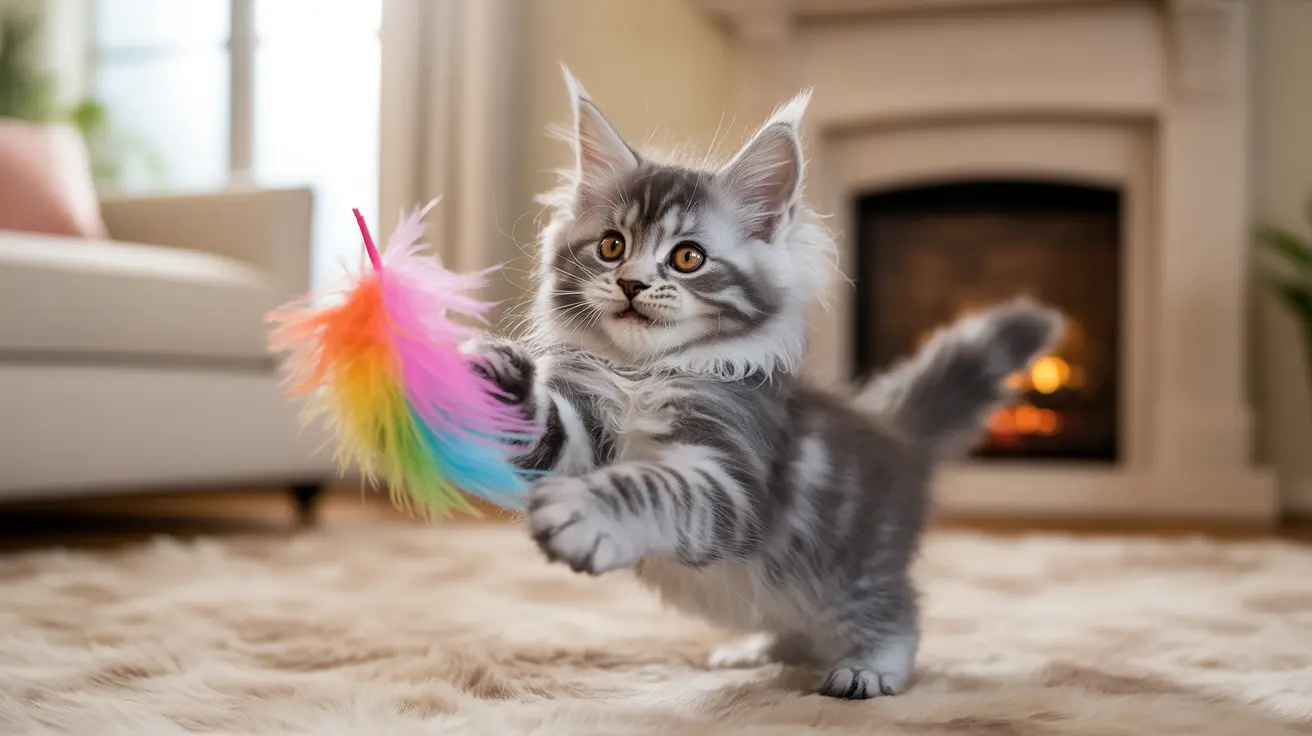Welcoming a 9-week-old kitten into your home marks the beginning of an exciting journey. At this crucial developmental stage, your kitten requires specific care to ensure healthy growth and proper socialization. This comprehensive guide will walk you through everything you need to know about caring for your young feline friend.
Understanding the unique needs of a 9-week-old kitten is essential for providing the best possible care. At this age, kittens are becoming more independent while still requiring careful attention to their physical, emotional, and developmental needs. Let's explore the key aspects of kitten care to help your new pet thrive.
Physical Development and Growth Milestones
At 9 weeks old, your kitten should weigh approximately 1060-1090 grams (37.3-38.4 ounces). They'll have all 26 baby teeth and display remarkable agility in their movements. Their eyes will have developed their permanent adult color, and their ears will be fully upright and alert to sounds.
You'll notice your kitten engaging in more coordinated play behaviors, including stalking and pouncing on toys. This physical activity is crucial for developing muscle strength and coordination.
Nutrition Requirements for Optimal Growth
Your 9-week-old kitten needs proper nutrition to support their rapid growth phase. They should be eating high-quality kitten food exclusively, as they require up to three times more calories and nutrients than adult cats.
Feed your kitten 2-3 times daily at regular intervals, ensuring fresh water is always available. Choose food specifically formulated for kittens, with higher protein and fat content to support healthy development.
Creating a Safe Environment
Kitten-proofing your home is essential for your pet's safety. Remove or secure potential hazards such as:
- Loose cords and strings
- Small objects that could be swallowed
- Toxic houseplants
- Electrical cables
- Breakable items on accessible shelves
Provide designated safe spaces for your kitten, including a cozy bed and quiet areas for retreat when feeling overwhelmed.
Socialization and Behavior Development
The period between 8-12 weeks is crucial for socialization. Your kitten should have daily positive interactions with people, other pets, and various environments. This exposure helps prevent fear and aggression in adulthood.
Encourage gentle play and handling, and introduce your kitten to regular household sounds and activities. This helps build confidence and adaptability in different situations.
Essential Health Care and Veterinary Needs
Schedule a veterinary check-up soon after bringing your kitten home. Your vet will ensure vaccinations are up to date and discuss important health matters including:
- Deworming treatments
- Parasite prevention
- Spaying or neutering options
- General health assessment
- Vaccination schedule
Litter Box Training and Hygiene
By 9 weeks, most kittens naturally use a litter box. Ensure the box is easily accessible with low sides and clean it daily. Place it in a quiet location away from food and water bowls to encourage regular use.
Frequently Asked Questions
What is the best diet and feeding schedule for a 9-week-old kitten?
Feed high-quality kitten food 2-3 times daily. Choose food specifically formulated for kittens with higher protein and fat content. Maintain a consistent feeding schedule and always provide fresh water.
How do I properly introduce and train my 9-week-old kitten to use the litter box?
Most 9-week-old kittens instinctively use the litter box. Place them in the box after meals and naps, and keep the box clean and easily accessible. Reward proper use with praise or treats.
What socialization activities are important for a 9-week-old kitten's development?
Expose your kitten to various people, pets, sounds, and environments. Encourage gentle handling and play, and provide positive experiences with grooming and routine care.
How can I kitten-proof my home to keep a 9-week-old kitten safe?
Remove or secure dangerous items like cords, toxic plants, and small objects. Cover electrical outlets, secure window screens, and provide safe spaces for exploration and retreat.
What veterinary care and vaccinations should a 9-week-old kitten receive?
Schedule an initial vet visit for vaccinations, deworming, and general health assessment. Discuss spaying/neutering options and establish a preventive care schedule with your veterinarian.
Conclusion
Caring for a 9-week-old kitten requires attention to detail and dedication, but the rewards of raising a healthy, well-adjusted cat are invaluable. Focus on providing proper nutrition, safe environments, and positive socialization experiences during this crucial developmental period. With proper care and attention, your kitten will grow into a happy, healthy adult cat.






